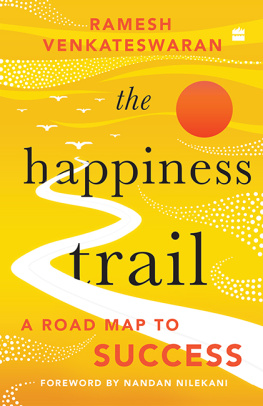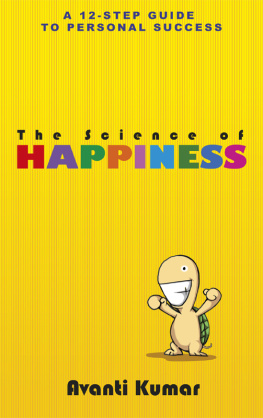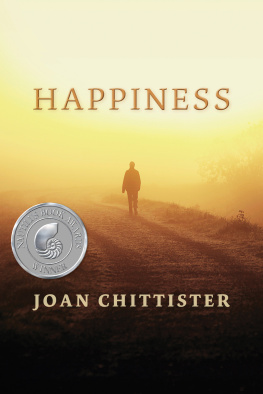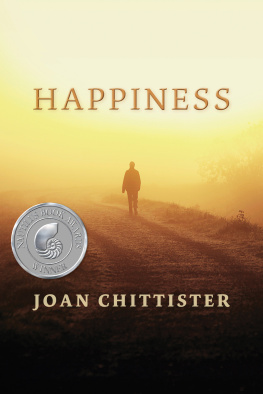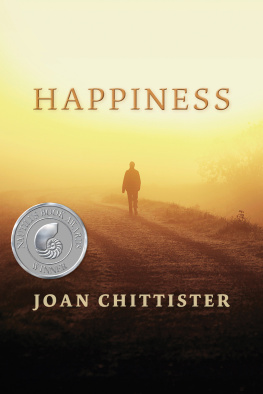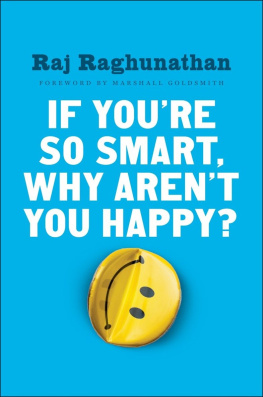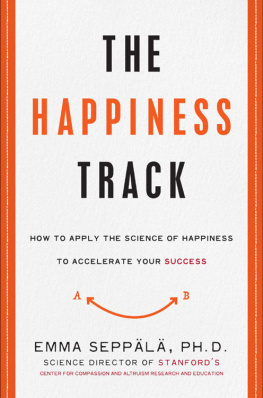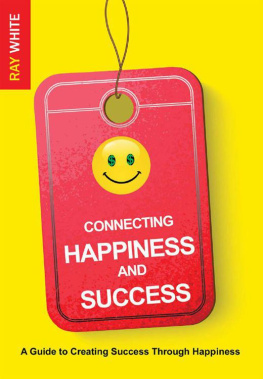Table of Contents
- Happiness and Success: Not Two Sides of
The Same Coin11


This book is dedicated to my parents
Lakshmi and S.S. Venkateswaran
Who taught me by example
This book is for
Karam, Ria, Anirudh and the Alpha generation
May you find happiness
Contents
Happiness and Success: Not Two Sides of
The Same Coin11

I N THIS EXTREMELY COMPETITIVE WORLD of abundant opportunities, small family sizes and parents willing to give their children anything, happiness has become a highly complex and, to a large extent, an elusive goal for many. The young adult is ambitious, demanding and often laidback. She has a huge canvas of opportunities and yet is often confused. This has resulted in general higher levels of stress and poorer mental health. The last eighteen months of the pandemic have only accentuated the problem. Despite substantial improvements in the quality of material life, happiness is something many of us are always searching. In our pursuit of success we often miss out on happiness.
At a time like this, The Happiness Trail: A Road Map to Success is most fortunate. This book covers with a spark of genuineness, simplicity and clarity on how to pursue two seemingly complimentary goals, happiness and success, that we many a time discover to be contradictory.
Ramesh and I have been friends for over three decades. My connection with Ramesh, however, goes back to about fifty years ago where he was my senior at IIT Bombay. I have been amazed at how he threw out the security and the lure of the corporate world to find more meaning to living in its true sense. He has donned many hatscorporate executive, independent management consultant, high school head, B-school director, mentor for many, active involvement in social projects, chairperson and volunteer at an NGO co-founded by him and a long-time faculty at the prestigious IIM Bangalore. Each time I would wonder how he landed there and what he would do. Every time he stepped out of his comfort zone, he has done so with energy and enthusiasm. I have seen that each new role has been one of self-learning, personal growth and an inspiration for those he interacted with, especially a large number of young mindsfrom school children to college graduates. I know that Rameshs father was an officer in the Indian Navy and also one of the first Indians to umpire at Wimbledon. I guess reinventing careers must be in his genes!
This book carries all these experiences and learnings, tried and tested by him and others over time.
I know that the insights he has shared are borne out of his first-hand interactions and track record of developing and building people across different age groups and in diverse settings. This book not only explores key issues of happiness and success but more importantly deals with the challenges in achieving happiness. It presents a compass to navigate through the anxiety and dilemmas that we face in making choices, as also a road map to translate intent into action and achieve happiness.
Though Rameshs thinking comes from his personal experiences, I firmly believe that these are guidelines that anyone can use for getting personal happiness, irrespective of how we define success. There is not a shadow of doubt in my mind that his interactions, experience and insights across the spectrum of his professional life hold him in good stead to write about success and happiness.
I am delighted to see the coming together of the book The Happiness Trail: A Road Map to Success. Now it wont be just those of us who have had the good fortune of knowing Ramesh that can benefit from his teachings but anyone and everyone.
I encourage you to embark on this promising journey and wish you a huge treasure of happiness.
Nandan Nilekani
Chairman and Co-founder, Infosys,
and Founding Chairman, UIDAI

T HE IDEA OF THIS BOOK came in an email from an old classmate of mine. The message was that we were all getting on in years and that it would be a good idea to leave behind something substantial for future generations. She suggested that we could list out five things for our grandchildren that would help them lead happy, successful and meaningful lives.
Initially, I did not give the email much thoughtit was one of those numerous messages one tends to get these days on various media groups that one is part of. As time went by, however, it struck me that in the preceding few years I had in fact been engaged in this topic, albeit not in the exact manner as articulated by my classmate in her email. But the email became the trigger for this book. Interestingly, she would not even know that she had sowed the seeds for this book since I never spoke to her about her email.
How exactly did this book come about? Let me explain.
After many years in the corporate world and as a private consultant and trainer, my career path took a huge turn. Without any planning or strategy, and purely by accident, I found myself in a fascinating world of young people. I was asked to head The Lawrence School, Lovedale, a heritage co-educational residential public school in Ooty (now Udhagamandalam) in south India. It is a 163-year-old school, located in the beautiful environment of the Nilgiri hills. The fact that the school was my alma mater only made the opportunity that much more exciting, my motivation to work there much more than it might have been otherwise, and the experience emotionally enriching and satisfying. After a short stint at The Lawrence School, I was extremely fortunate to head a graduate school of managementthe Sri Dharmasthala Manjunatheswara Institute of Management Development (SDMIMD) in Mysore (Mysuru)for four years. Thus, in a short period of six years, I got the opportunity to meet and interact with young people in the age groups between nine and twenty-five years from very close quarters and in fully residential environments. This gave me round-the-clock access to a completely different worlda world I had left behind many years earlier.
I have been extremely fortunate and privileged to have interacted with the younger generation and to have seen their world across multiple perspectives and conditions, and in a far more intimate and intense manner than would have been possible in a normal day school or college. In addition to this, I have been an adjunct faculty for over twenty-five years at a leading B-school in Indiathe Indian Institute of Management Bangalore. In this process, I have had the good fortune of meeting, teaching and getting to know some of the brightest minds in the country.
Adding to the series of chance events, I got into the field of mental health and counselling in 1991. I am a co-founder and volunteer at Vishwas, Society for Mental Health. Vishwas is a not-for-profit organization that offers free services to help people under emotional stress. All services are provided by trained volunteers on a completely pro bono basis. My work with Vishwas over the last thirty years as a volunteer, trainer and administrator has allowed me to see many facets of people from all walks of life which would not normally be evident to most others, even those close to them. This gave me a degree of sensitivity towards people that I am sure I would not have got otherwise.

